
Do you remember the first time you stepped into a world so open, so rich with mystery and danger, that you didn’t know where to go first—but didn’t care? Maybe it was wandering through the Imperial City, accidentally starting a guild quest, or watching in awe as the sky cracked open with a fiery Oblivion gate. For millions of players back in 2006, The Elder Scrolls IV: Oblivion wasn’t just a video game—it was a rite of passage into the golden age of open-world RPGs.
Fast-forward to 2025, and Bethesda has handed us a beautifully crafted gift: The Elder Scrolls IV: Oblivion Remastered. It’s not just a nostalgia trip—it’s a full revival. With cutting-edge visuals powered by Unreal Engine 5, smoother gameplay, a reworked UI, and thoughtful mechanical upgrades, this remaster doesn’t just polish the past—it reimagines it for a whole new generation of gamers.
And for long-time fans? It’s like returning to a childhood home that’s been lovingly renovated—same soul, but it finally looks as good as it felt back then.
What makes this remastered version such a big deal? Well, we’ve seen plenty of reboots and re-releases, but few strike the perfect balance between respecting the original and modernizing where it matters. Bethesda, in collaboration with Virtuos, nailed that sweet spot. Whether you’re a veteran adventurer who spent hundreds of hours in Cyrodiil or someone who missed the original release entirely, Oblivion Remastered offers an experience that’s both timeless and fresh.
With its official launch on April 22, 2025, for PC, PlayStation 5, and Xbox Series X/S, and availability on Game Pass, there’s really no excuse not to dive in. So grab your gear, pick a path—mage, warrior, thief, or something in-between—and get ready to lose yourself in one of the most iconic RPGs ever made, now better than ever.
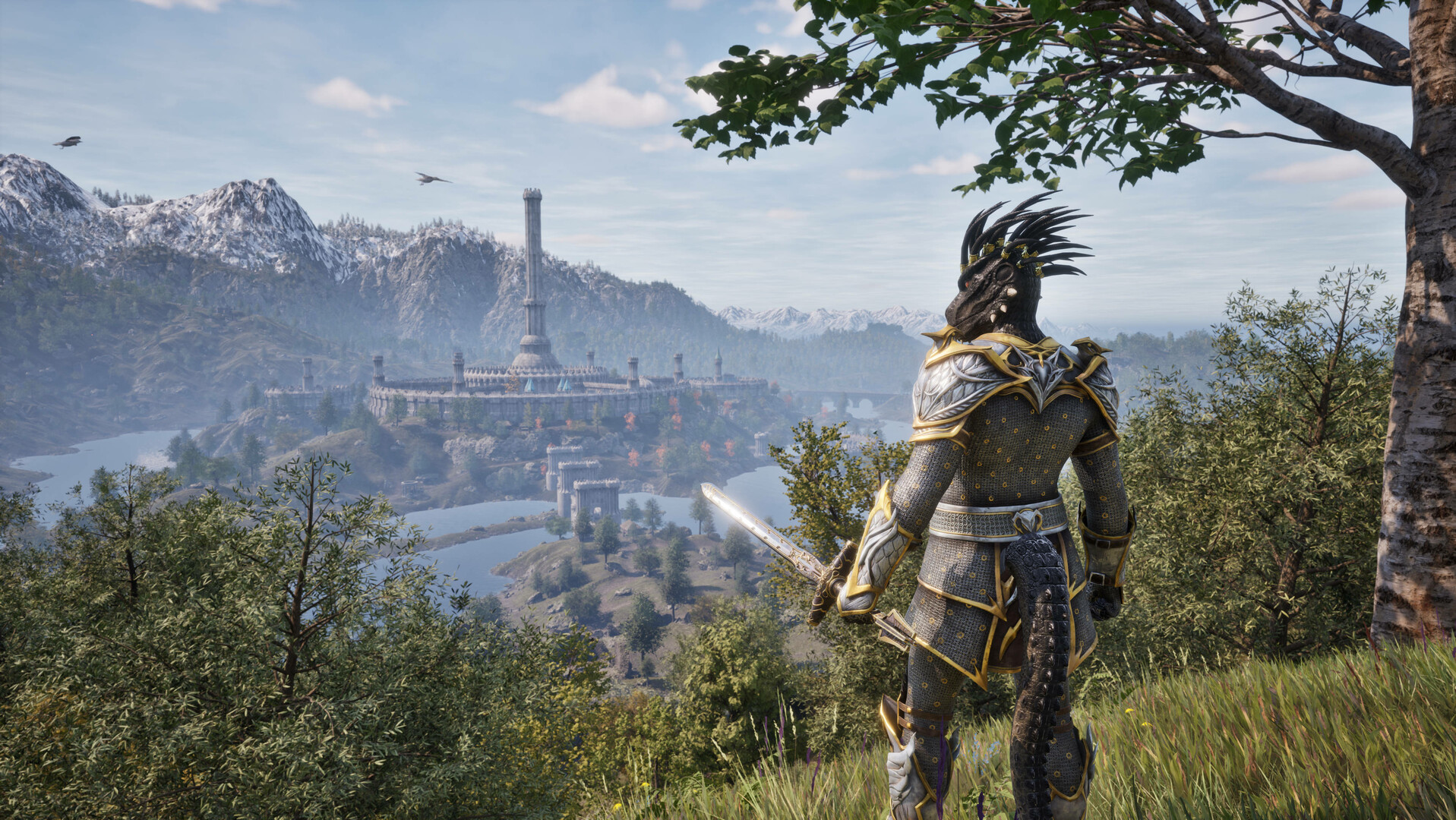
Why The Elder Scrolls IV: Oblivion Remastered Deserves Your Attention in 2025
Let’s face it—remasters are everywhere nowadays. But Oblivion Remastered isn’t just about polishing the graphics or adding new shaders. It’s a passionate reimagining of a beloved classic with Unreal Engine 5 giving it a massive facelift. Every cobblestone in Cyrodiil has been reworked. Trees sway more naturally. Lighting feels alive. If you’ve played the original, this is like waking up in the same dream—but everything is crystal clear.
Bethesda partnered with Virtuos for this remaster, and it shows. They didn’t change the heart of the game. Instead, they respected its legacy while updating it for modern gamers. The same soul-stirring story remains, but it now looks and feels like something built for today’s expectations.
If you’re looking for depth, exploration, player freedom, and storytelling that grabs you from the first hour, Oblivion Remastered deserves a permanent place in your gaming library.
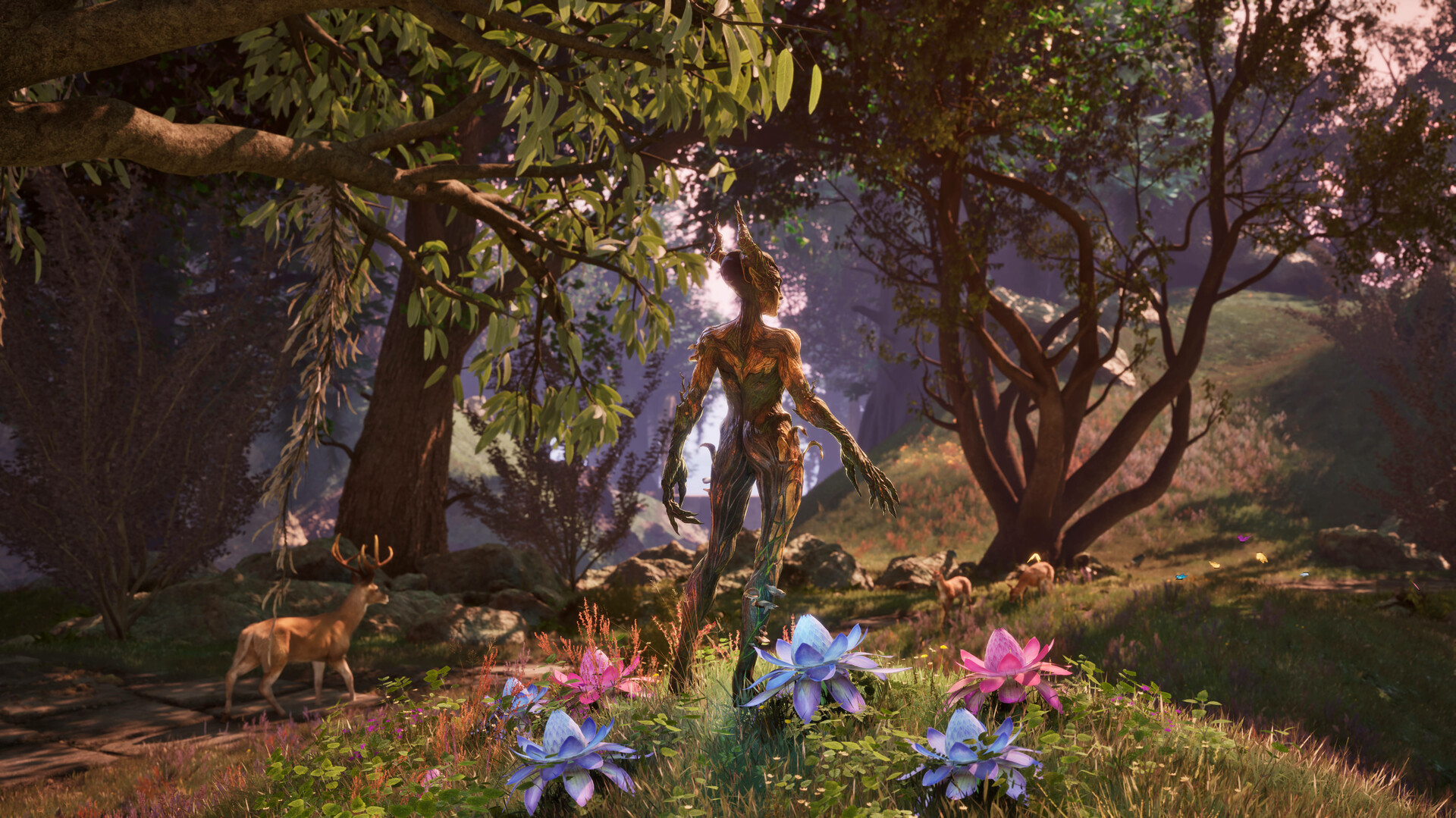
A Deep Dive into the Remastered Storyline and Its Timeless Appeal
At the heart of Oblivion Remastered is a timeless story set in the vibrant province of Cyrodiil—the capital of the Tamrielic Empire. Chaos has descended. The emperor is dead, assassinated by mysterious forces. The gates to Oblivion—essentially Tamriel’s version of hell—are opening, unleashing nightmarish Daedra upon the land.
As the chosen hero, you’re thrust into a quest to locate the last heir to the throne and push back the demonic invasion. But here’s the kicker: the story doesn’t force you down one path. You can delay saving the world and spend 50+ hours exploring guild quests, becoming a vampire, mastering alchemy, or just robbing every noble in the city (if that’s your thing).
The remaster retains every bit of that branching storytelling and player agency. You’re not a side character in someone else’s tale—you are the author of your own destiny.
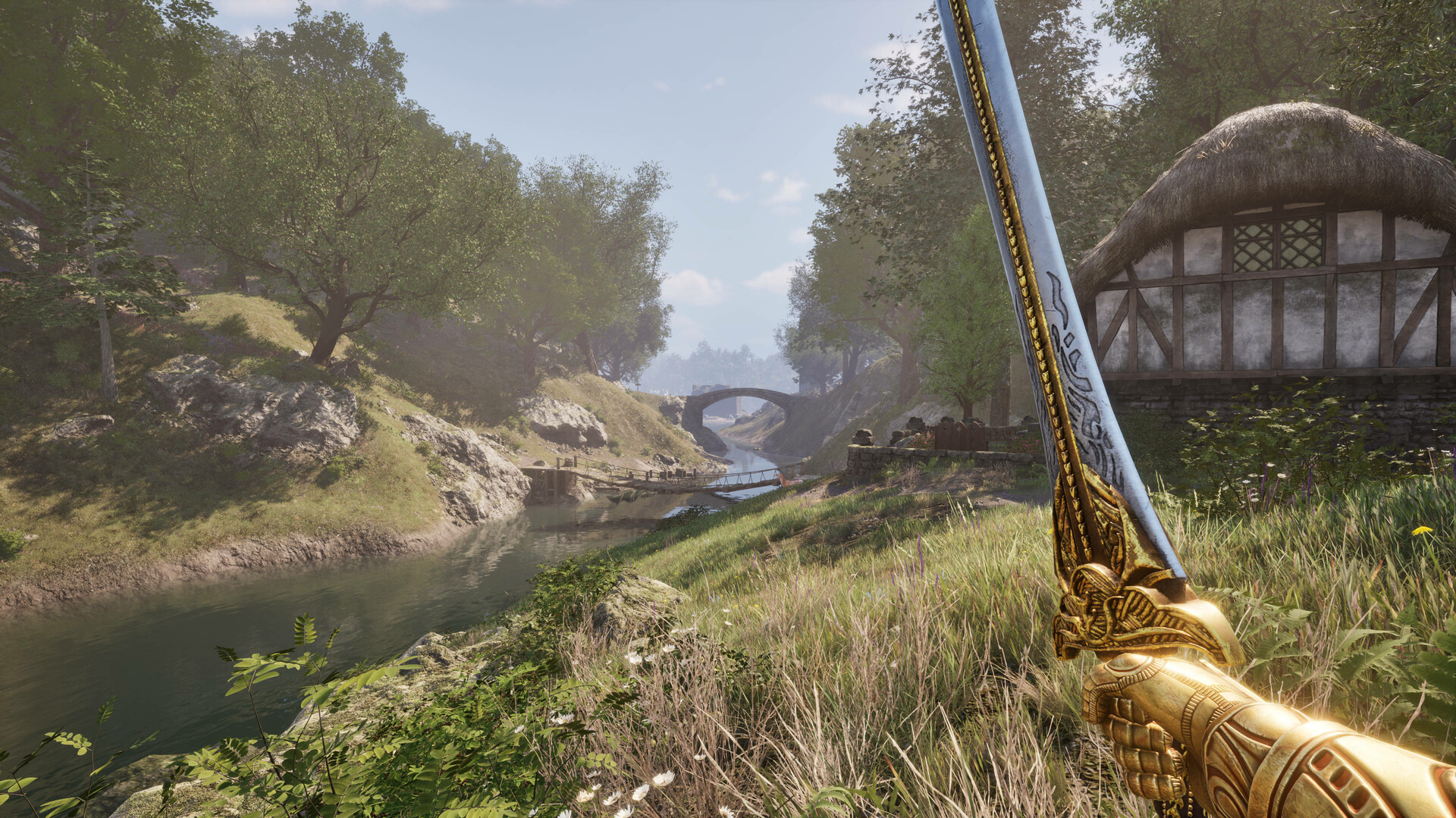
Genre Breakdown: What Makes Oblivion a Landmark in Open-World RPGs
What really sets The Elder Scrolls IV: Oblivion Remastered apart from other RPGs isn’t just the story or the setting—it’s how the game trusts you to create your own experience. Back in 2006, Oblivion wasn’t just a game; it was a genre-defining moment that shifted what players expected from open-world role-playing games. Now, in 2025, the remastered version serves as both a nostalgic reminder and a masterclass in RPG design that still holds its own.
Let’s unpack why this game continues to be a gold standard for open-world RPGs.
Unmatched Player Freedom
In most games, you play a character with a predefined role. In Oblivion, you are whoever you want to be. Want to be a wandering bard who steals from nobles and donates to beggars? Go for it. Prefer to become a battlemage who masters both swordplay and sorcery? Nothing’s stopping you.
There’s no “right” way to play. You can be a pacifist alchemist, spending your days gathering herbs in forests and avoiding combat. Or you can lean into darkness and join the Dark Brotherhood, carrying out assassinations with a chilling whisper. The game encourages experimentation and never punishes you for deviating from the expected path.
This level of agency isn’t just rare—it’s liberating.
Deep and Flexible Character Progression
Many RPGs lock you into rigid character classes. In Oblivion Remastered, you get a fluid class system where skills grow based on how often you use them. Swing a sword? Your blade skill improves. Sneak around towns at night? Your stealth gets better. This progression system mirrors real-life learning: the more you practice, the more you improve.
And with the remastered version, this system has been refined to feel smoother and more intuitive. Leveling up now rewards you with points to invest in core attributes like strength, intelligence, and agility—making progression more impactful and easier to manage, especially for new players.
Guilds and Factions That Feel Like Entire Games
If you’ve never joined a guild in Oblivion, you’re missing out on some of the most immersive subplots in gaming. The Fighters Guild, Mages Guild, Thieves Guild, and the Dark Brotherhood all have fully fleshed-out storylines with meaningful character arcs and moral decisions.
These aren’t side quests—they’re full-on narratives that could stand alone as their own mini-campaigns. Each guild has its own tone, mechanics, and progression system. For instance, the Dark Brotherhood quests are stealth-focused and dripping with grim intrigue, while the Mages Guild emphasizes exploration, magical theory, and politics.
Few RPGs before or since have matched the level of narrative depth packed into what are technically “optional” questlines.
A Living, Breathing World
Cyrodiil isn’t just a big map—it’s a carefully crafted world. Cities have distinct cultures, architecture, and local politics. Villagers gossip about current events. NPCs follow their own schedules, eat, sleep, and react to your actions. The Radiant AI system, revolutionary for its time, is back in the remaster with improved stability and subtle tweaks.
This makes the game feel alive in ways that many modern titles still struggle to replicate. You’ll genuinely feel like you’re part of a complex, interconnected world where your actions matter, even outside of main story beats.
A Genre That Blends Combat, Magic, and Exploration Perfectly
Combat in Oblivion isn’t about twitch reflexes—it’s about preparation and adaptability. You can fight with a warhammer, summon a spectral ally, or set traps using illusion magic. With the remaster’s new animations and enhanced physics, every fight feels more grounded and dynamic.
And then there’s exploration. Few games reward curiosity quite like Oblivion. You’ll find unmarked ruins, hidden caves, strange artifacts, and mysterious books just by veering off the beaten path. The joy isn’t in checking off objectives—it’s in discovering something incredible you weren’t even looking for.
The Legacy Factor
It’s hard to overstate how influential Oblivion has been on the genre. It laid the groundwork for Skyrim, inspired countless RPGs, and introduced many players to the freedom of non-linear storytelling. Its open-ended design, layered world-building, and nuanced mechanics became the template that future games aspired to.
Now with the remaster, the game reasserts its legacy—not as an outdated classic, but as a living, breathing RPG that can still stand tall among today’s best.
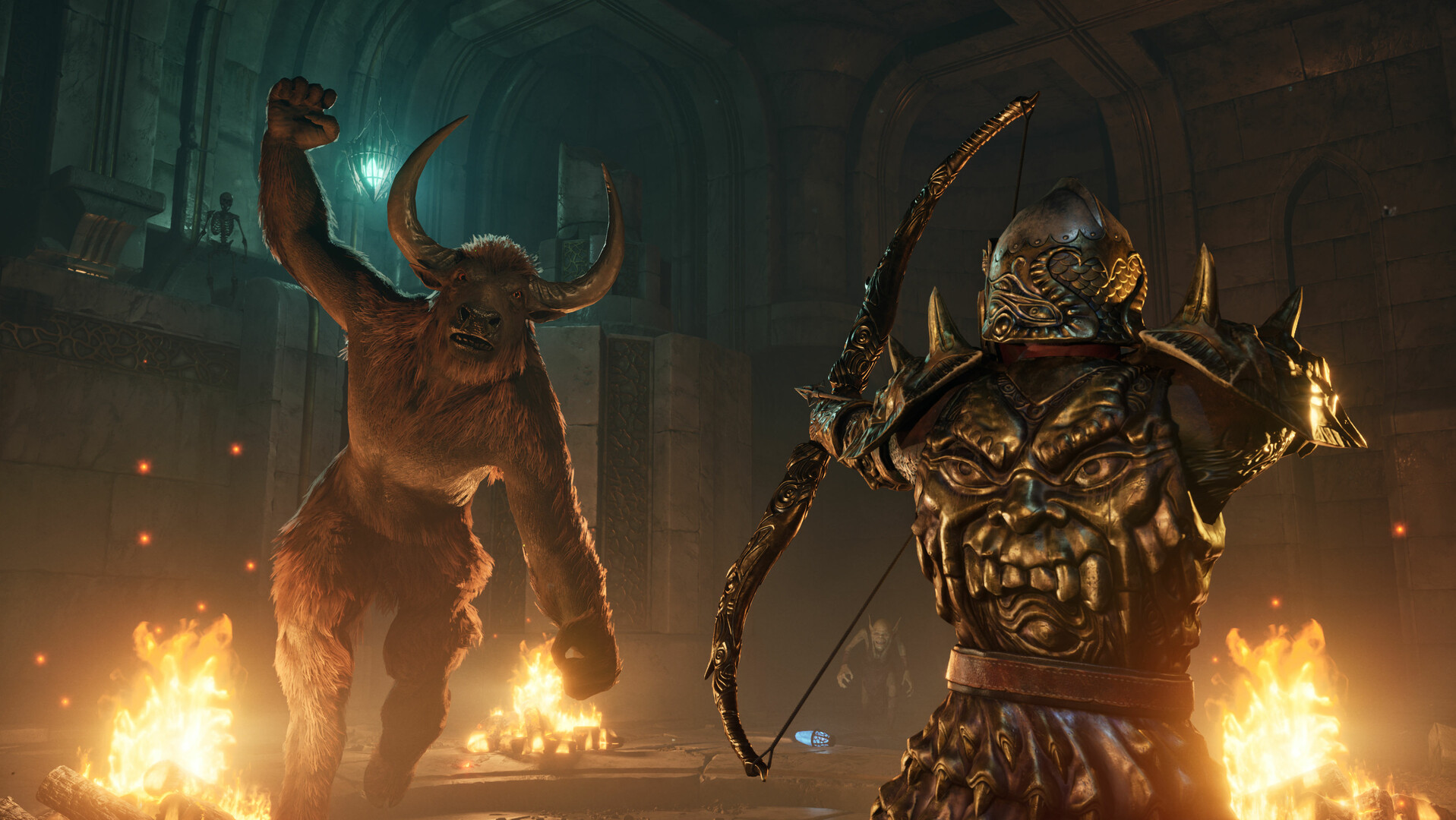
What’s New in The Elder Scrolls IV: Oblivion Remastered? Major Upgrades You’ll Love
The developers didn’t just slap some HD textures on the original and call it a day. Oblivion Remastered comes packed with meaningful upgrades that actually improve gameplay quality:
- New Graphics Engine (Unreal Engine 5): Lighting, shadows, weather, and animations look phenomenal. Cyrodiil now feels like a living, breathing world.
- Updated Combat Animations: Sword swings, arrow shots, and magic effects have a satisfying weight to them. Battles are way more immersive.
- Modernized UI: The interface now resembles Skyrim or Elder Scrolls Online, making inventory, maps, and character sheets easier to manage.
- New Sprint Mechanic: Finally, you can sprint! No more slow jogs across endless landscapes.
- Improved Camera and Movement: The third-person camera now hovers over the shoulder, making it feel more natural and cinematic.
- Streamlined Leveling System: Instead of micromanaging skill builds, you now assign points to core stats directly when leveling up. Simple, satisfying, and less grindy.
Oh, and let’s not forget the complete story package included in the game. You’re getting Shivering Isles, Knights of the Nine, and all the minor DLCs in one definitive edition. No extra purchases required.
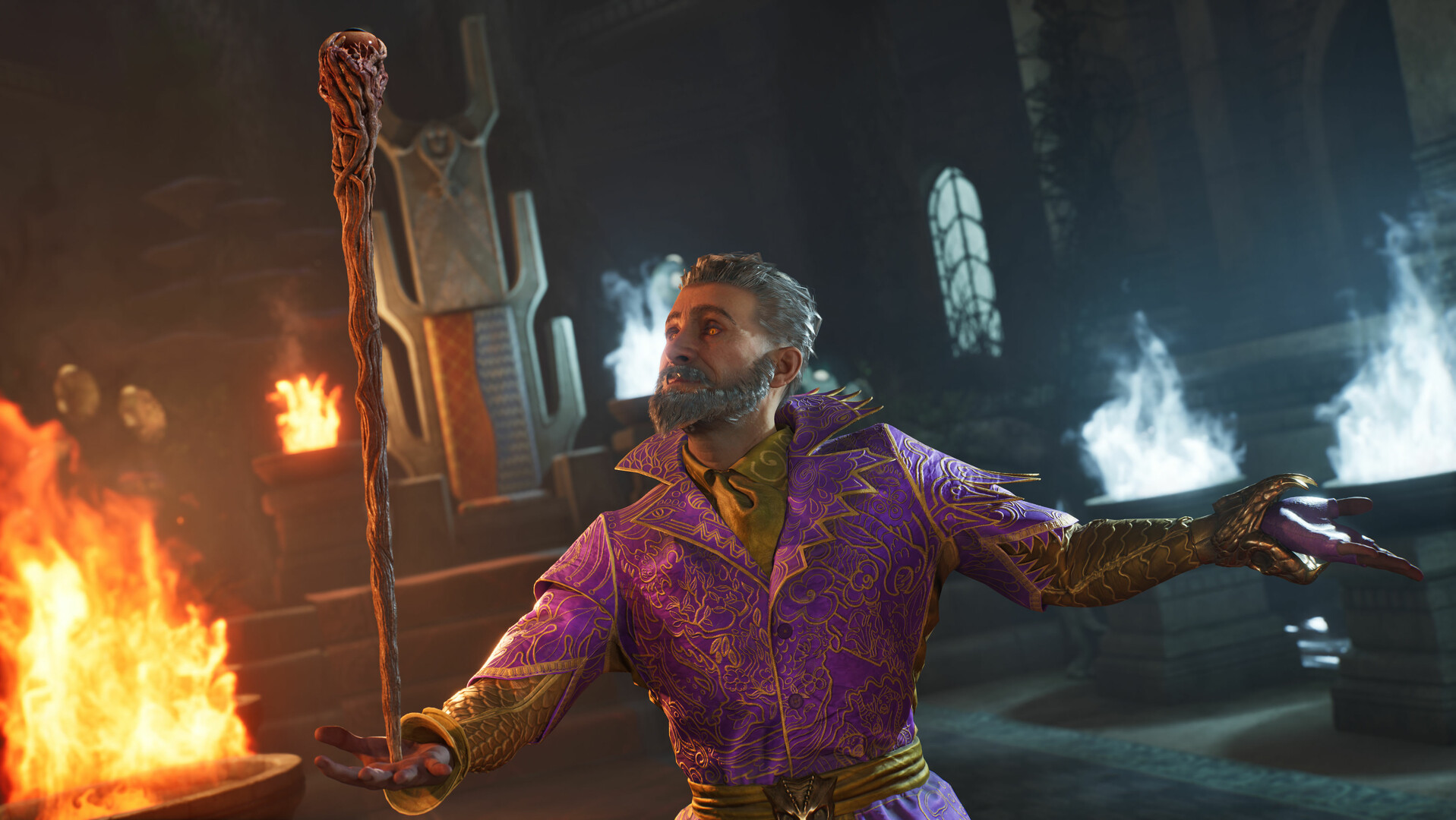
Where and When to Play The Elder Scrolls IV: Oblivion Remastered
As of April 22, 2025, Oblivion Remastered is fully available on:
- PC
- PlayStation 5
- Xbox Series X/S
It also launched on PC Game Pass and Xbox Game Pass, meaning you can jump in without an upfront purchase if you’re a subscriber.
And yes, the game is fully optimized for next-gen consoles, offering smooth performance, fast load times, and full controller support. This isn’t a port—it’s a purpose-built remaster for the hardware we have now.
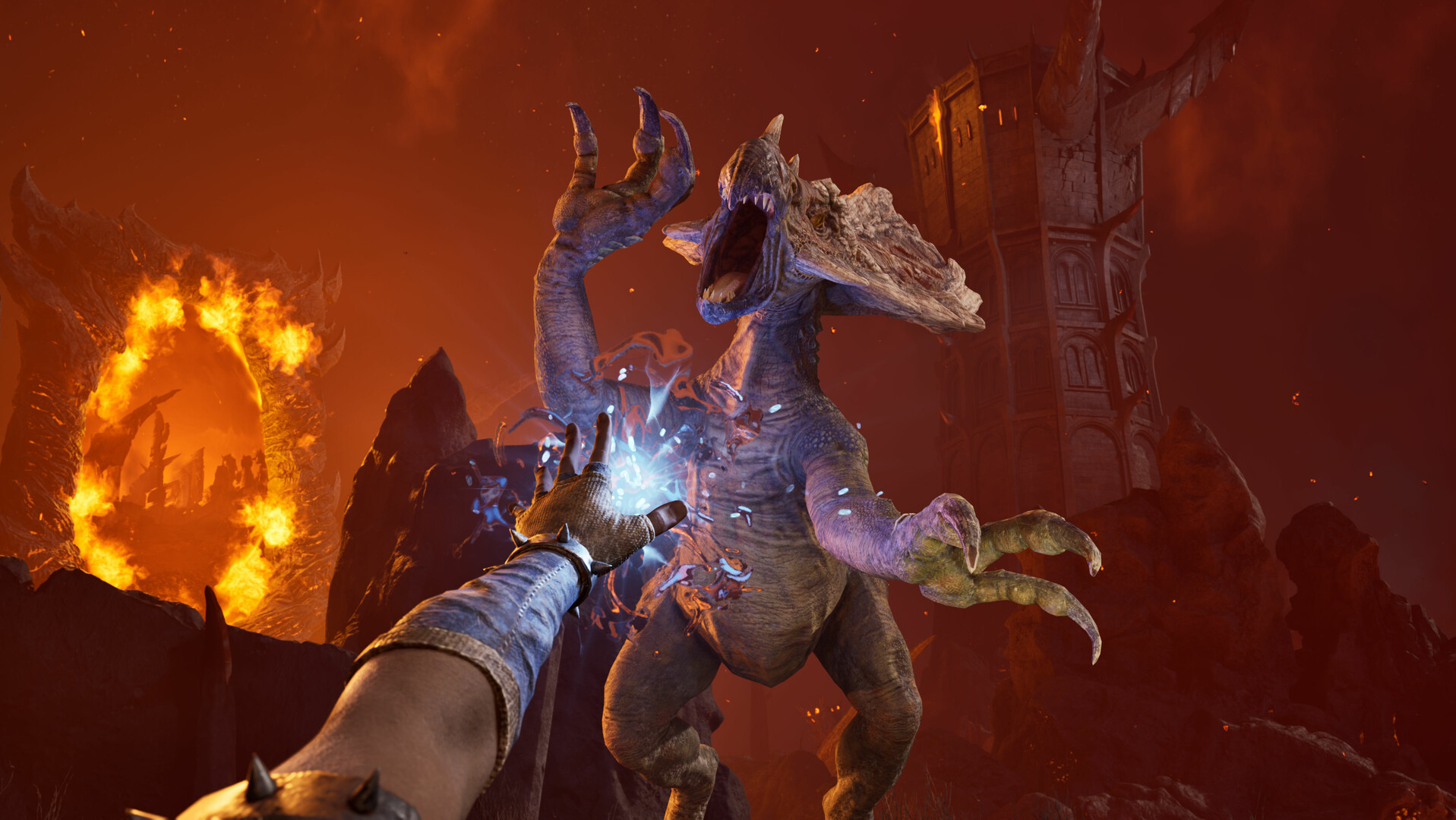
Conclusion: Why Oblivion Remastered Is an Unmissable Experience
In a gaming world where remasters often feel like lazy re-skins, The Elder Scrolls IV: Oblivion Remastered is a shining example of how to do it right. It’s not just a new coat of paint—it’s a carefully reconstructed experience that pays tribute to the game that helped define modern open-world RPGs.
From the moment you step into Cyrodiil, you can feel the passion poured into every pixel. The remastered landscapes are breathtaking, the characters more expressive, and the once-clunky combat and UI are now intuitive and enjoyable. It respects your time as a modern gamer while still delivering that massive sense of freedom and adventure that made the original so unforgettable.
And that’s the magic here—you still get to choose how the story unfolds. Maybe you’ll dive into the main quest and shut the gates of Oblivion as a noble hero. Or perhaps you’ll get distracted (in the best way) and rise through the ranks of the Dark Brotherhood, or explore forgotten ruins for rare loot. You can play at your own pace, make your own rules, and live out your own fantasy in one of the most immersive virtual worlds ever created.
The inclusion of Shivering Isles and Knights of the Nine, along with all DLC content, makes this the definitive way to experience Oblivion. It’s generous, it’s robust, and it’s built to last. Whether you’re exploring the game for the first time or returning after nearly two decades, this remaster hits the sweet spot between nostalgia and novelty.
So why should gamers play Oblivion Remastered? Because it captures everything that makes RPGs magical: meaningful choices, compelling stories, and the thrill of the unknown just over the next hill. It’s not just a game—it’s an epic journey that every gamer owes themselves to take.
Don’t just play it. Live it.
Frequently Asked Questions (FAQs) about The Elder Scrolls IV: Oblivion Remastered
- Is there a major difference between the original Oblivion and the remastered version?
Yes! Aside from massive visual improvements, Oblivion Remastered introduces updated UI, new animations, sprinting, a modern third-person camera, and a streamlined leveling system. - Can I play The Elder Scrolls IV: Oblivion Remastered on PS4 or older platforms?
No. The remaster is available only on PC, PlayStation 5, and Xbox Series X/S. It’s designed specifically for modern hardware. - Are mods supported in Oblivion Remastered?
Unfortunately, unlike the original game, the remastered version does not support mods officially. - Is all DLC included in the remaster?
Yes! You get the full package—Shivering Isles, Knights of the Nine, and all other smaller DLCs are included with the game. - How long is the game, and is it beginner-friendly?
You can easily spend 100+ hours exploring everything. And yes, with the new UI and simplified mechanics, it’s more approachable for newcomers than ever.